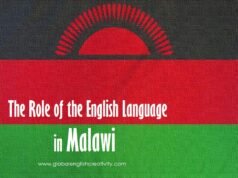Understanding IGCSE: A Gateway to Global Education
The International General Certificate of Secondary Education (IGCSE) is one of the world’s most popular international curriculums for students aged 14 to 16 years. Developed by Cambridge Assessment International Education, a part of the University of Cambridge, IGCSE is a globally recognized qualification that prepares students for higher education and employment, both nationally and internationally. What is IGCSE?
What is IGCSE?
The IGCSE is an academically rigorous, internationally used, and internationally recognized curriculum that is equivalent to the UK’s GCSE (General Certificate of Secondary Education). It is widely accepted as an entry qualification into higher education institutions worldwide.
 Key Features
Key Features
- Available in over 150 countries.
- Offers more than 70 subjects, including 30 languages.
- Focuses on the development of creative thinking, inquiry, and problem-solving skills.
- Encourages a global perspective with a local relevance.
 History and Evolution
History and Evolution
The IGCSE was introduced in 1988 by Cambridge International to meet the needs of international students who may not be native English speakers. Since then, it has evolved into a flexible and comprehensive program that balances academic excellence with practical application.
 Structure of the IGCSE Curriculum
Structure of the IGCSE Curriculum
The IGCSE curriculum is designed to be flexible, allowing schools to tailor courses to suit students’ abilities and interests.
 Core Subjects
Core Subjects
Languages (First Language, Second Language, Foreign Language)
Humanities and Social Sciences (History, Geography, Economics)
Sciences (Physics, Chemistry, Biology, Environmental Management)
Mathematics (Core and Extended)
Creative, Technical and Vocational Subjects (Art & Design, ICT, Music, Business Studies)
 Assessment
Assessment
- Conducted at the end of the course (generally after 2 years of study).
- Mostly written examinations, but some subjects include oral, coursework, and practical assessments.
- Graded from A to G*, with U being ungraded.
- In some subjects, an “Extended” and “Core” level is offered to cater to different ability levels.
 Why Choose IGCSE?
Why Choose IGCSE?
1. International Recognition
IGCSE is recognized by universities, employers, and education systems across the world, including the UK, USA, Canada, Australia, and Singapore.
2. Broad Subject Choice
It offers a wide range of subjects which allows students to pursue their interests and strengths.
3. Academic Rigor
The syllabus develops academic skills that are essential for advanced study, including analytical thinking, evaluation, and communication skills.
4. Flexible Curriculum
Schools can offer a combination of subjects and levels that suit their students’ needs and cultural contexts.
5. English Proficiency
It helps non-native speakers to develop strong English language skills through structured language support.
 Challenges of IGCSE
Challenges of IGCSE
While IGCSE offers numerous benefits, it also comes with challenges:
Cost: IGCSE schools often have higher tuition fees compared to national boards.
Availability: Limited number of IGCSE schools in some regions.
Difficulty Level: The syllabus can be demanding, especially for students unfamiliar with English as a first language.
 IGCSE and Further Education
IGCSE and Further Education
An IGCSE qualification is a solid foundation for students planning to take:
- A Levels (Advanced Level)
- IB Diploma (International Baccalaureate)
- Pre-U or other advanced qualifications
Students with IGCSE backgrounds often perform well in international and competitive exams due to their solid academic training.







































